WOMEN: FEELING OFF-BALANCE?
For women, hormone balance is key to overall health—affecting moods, weight, sleep, and much more.
Get full access to Outside Learn, our online education hub featuring in-depth nutrition, fitness and adventure courses, and more than 2,000 instructional videos when you sign up for Outside+..
They’re essential for life,tiny chemical messengers that create physiological effects. But if they become unbalanced, hormones can wreak havoc on moods, cause weight gain, and make you feel like your brain is on vacation. Of approximately 50 different hormones in the human body, three are especially crucial for women:

Estrogen, the most important hormone for women, spikes at puberty and is primarily responsible for sexual development and reproduction. Too little estrogen, and your periods may cease; too much, and cramping and heavy menstrual flow occur. Left unchecked, excess estrogen can result in fibroids and increased risk of cancer. Too little is also associated with heart disease and low bone mineral density.
Progesterone, the second main hormone for women, keeps estrogen in check. Progesterone production amps up during the second half of the menstrual cycle to encourage pregnancy. Progesterone levels naturally begin to decline when you reach your 40s, which can result in anxiety, insomnia, and memory problems.
Testosterone, often considered a “male” hormone, is made by women too. Levels rise and fall throughout the monthly cycle, tending to peak in the middle. Excess testosterone, especially around menopause, is associated with insulin resistance and belly fat.
In balance, these hormones make your body run like a well-oiled machine. Out of balance, they make you feel like you’re in the seventh circle of hell (remember Dante’s Inferno?). The good news is that there are safe, natural ways to treat hormone-related issues. Here are some of the best options:
1. Depression, irritability, mood swings. “Hormone imbalances cause shifts in mood through the effects of progesterone and estrogen in the nervous system, and the effects on blood calcium levels,” says Laurie Heap, MD, a physician specializing in hormone balancing (RUhealthyRUhappyMD.com). Estrogen causes the release of brain chemicals that make us awake and alert. But estrogen can cause over-stimulation if it’s not balanced by progesterone.
What works: Try vitamin B6 and calcium citrate. “Starting B6 supplements after ovulation helps stabilize brain cells, and calcium citrate counters the dip in blood calcium levels that occurs leading up to a woman’s period,” says Heap. (Note: When taking calcium supplements, be sure to also take magnesium, essential for proper calcium absorption and utilization). A healthy diet—avoiding refined starches and sugar, eating enough protein and healthy fats—is also key. For tough cases, calming herbs, such as valerian, passionflower, and catnip, may help.
2. Insomnia. Like mood swings, hormone-related insomnia is caused by an estrogen/progesterone imbalance. Hormone-related insomnia is most common during menopause and perimenopause, when the ovaries slow production of estrogen and progesterone. During menopause, hot flashes or night sweats can disturb sleep. And the body’s production of the hormone melatonin, which promotes sleep, decreases as we age as well.
What works: If you have trouble sleeping just before your period, calcium supplements may help.
If your sleeplessness is associated with hot flashes or night sweats,
try black cohosh. Melatonin supplements can also help; sublingual forms tend to be the best absorbed type, according to Heap.
3. Bloating and water retention.“Bloating is due to the effects of estrogen and progesterone on the kidneys,” says Heap. “An imbalance tells the kidneys to keep more water, which expands plasma volume and increases water weight gain.” This is most common during pregnancy, when plasma volume expands dramatically, but it can also happen just before your period.
What works: Reduce the amount of salt in your diet the week before your period. Also avoid excess sugars and refined carbs, since they can raise blood sugar and encourage sodium retention.
4. Irregular or painful periods. Irregular cycles may be caused by insulin resistance, which prompts testosterone production by the ovaries that can disrupt menstruation, says Heap. Pain and cramping during periods are caused by prostaglandins—substances that stimulate uterine contractions—and are exacerbated by inflammation.
What works: “A low-glycemic diet reduces the need for insulin produced in the body to maintain normal blood sugar, and decreases the need for the ovaries to produce excess testosterone,” says Heap. (Editor’s note: For a list of low-glycemic foods, visit amazingwellnessmag.com.) Additionally, omega-3 fats mitigate the effects of inflammatory prostaglandins. And evening primrose and borage oil are rich in an omega-6 fat called GLA, which interferes with inflammatory prostaglandin production.
5. Acne. An excess of androgenic hormones such as testosterone can lead to an overproduction of sebum, the oil that lubricates skin. This often sets the stage for clog pores and acne.
What works: A low-glycemic index diet, milk thistle, and chasteberry may help.
6. Low libido. Testosterone fuels desire. Around ovulation, testosterone levels surge, as does libido. As we age, these surges occur less often.

What works: Black cohosh, damiana, and ginseng may to help increase sexual desire. Maca root may also help by boosting mood and testosterone levels.
WHY IS IT SO HARD TO MAINTAIN MY WEIGHT AS I GET OLDER?
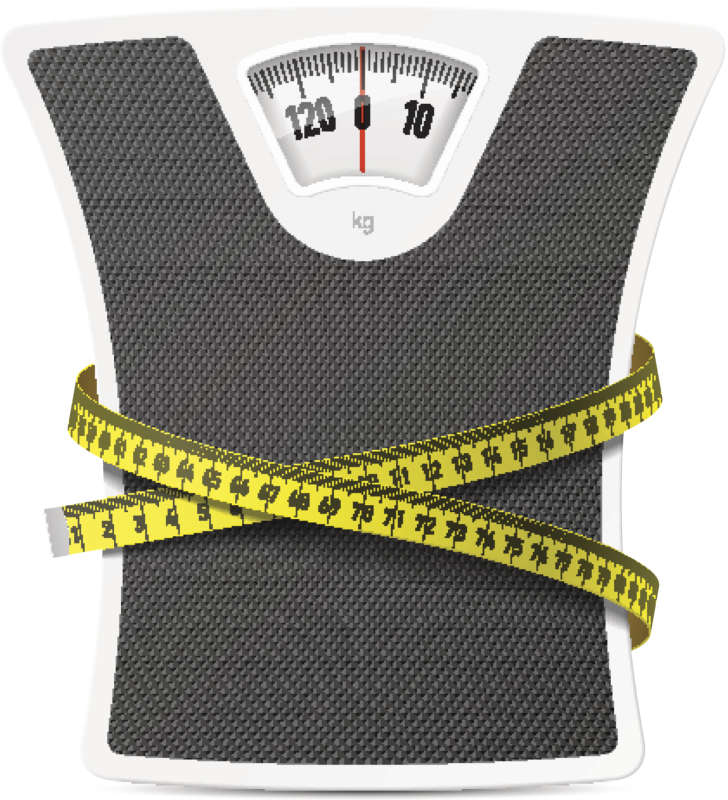
Weight gain, especially around the middle, is common during menopause. And chronic stress increases cortisol levels, which can also impact hormone balance, says Heap. Cortisol inactivates thyroid hormone, which can further exacerbate weight gain. Lower levels of estrogen can also contribute to weight gain during this time.
What works: Avoid stress, exercise more, and follow a low-glycemic diet. Try ground flax seeds (try sprinkling on oatmeal, yogurt, and salads), which contain hormone-balancing phytoestrogens. Taking ginseng, green tea, and spirulina (a blue-green algae high in protein) supplements can help rev up a sluggish metabolism.
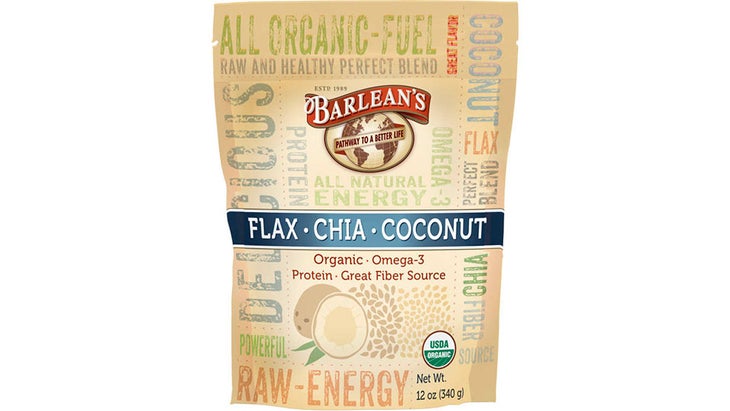
BARLEAN’S Flax • Chia • Coconut, a non-GMO blend of flaxmeal, chia seeds, and shredded coconut. One serving provides plant-based omega-3s and 3 g of fiber.
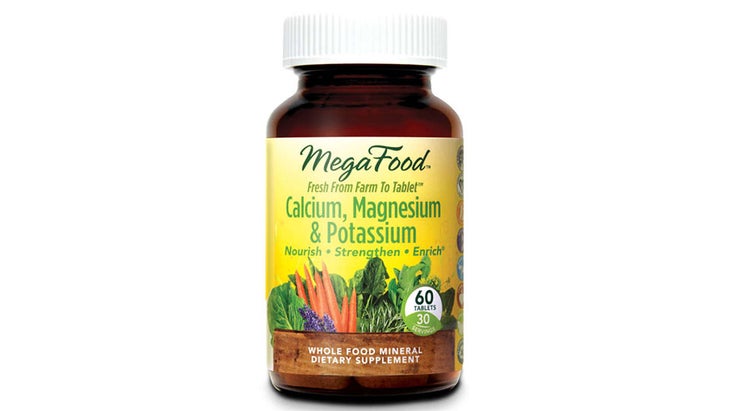
MEGAFOOD Calcium, Magnesium, & Potassium features a balanced ratio of calcium and magnesium and is derived from organic, whole-food-sources.
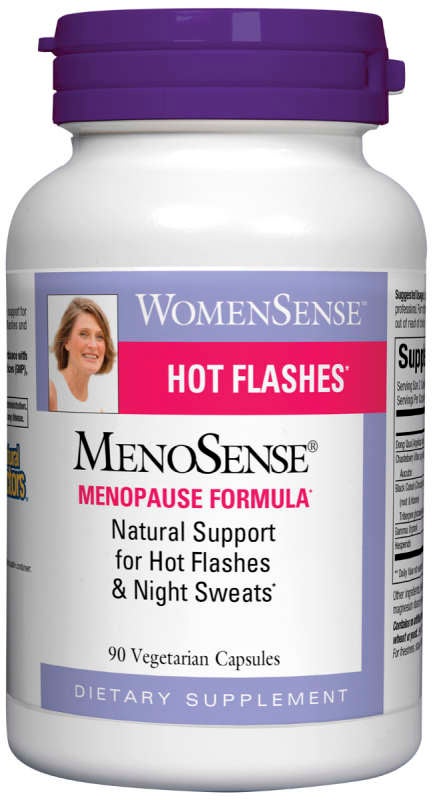
NATURAL FACTORSMenoSense is formulated with black cohosh, chasteberry, and dong quai to relieve symptoms related to menopause (e.g., hot flashes).
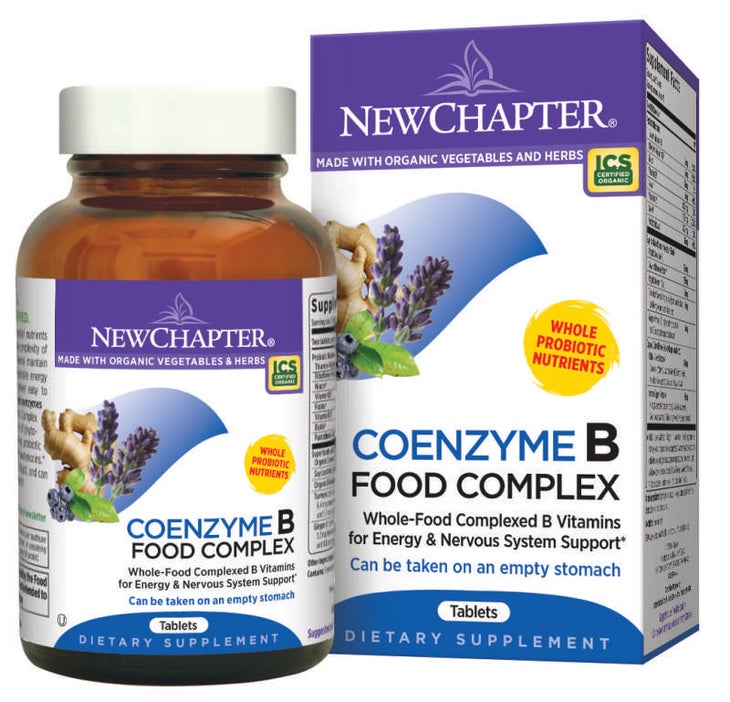
NEW CHAPTER Coenzyme B Food Complex includes the full range of B vitamins, including vitamin B6, cultured using live probiotics for optimal bioavailability.
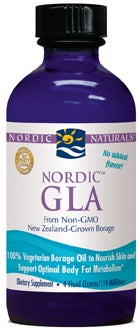
NORDIC NATURALS GLA,made exclusively with non-GMO borage seed oil, is a liquid supplement that may help to ease painful or irregular periods.